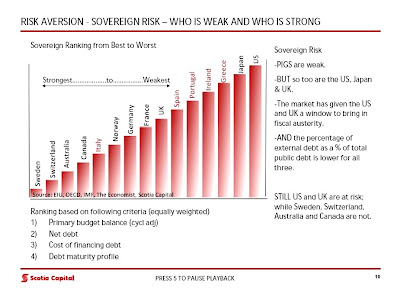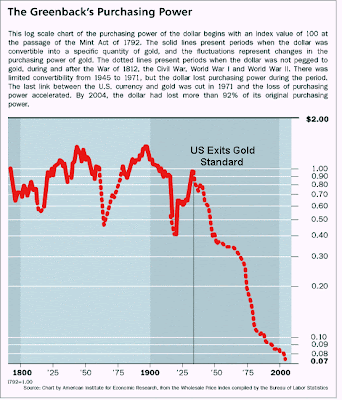I’ve had a very substantial USD CD in a US bank for the past couple of years and its term is going to end next month, so I need to decide whether to let them renew it, switch it to a CD at another US bank with a slightly higher rate (I picked my present bank after researching top CD rates, but it changes every year), cash it in and buy stocks, or put it in a safe investment in some other currency.
I’ve got an equal amount in stocks and they’re mostly gaining nicely now, but I’ve been kindof soured on the stock market in recent years and like the safety of a CD. It’s guaranteed to make it’s tiny little gain. Yes it’s guaranteed not to keep pace with inflation, but at least it won’t drop 20% or whatever stocks might do (and it’s 100% guaranteed by the US govt). So I will almost surely keep it in either a CD or some other extremely safe alternative. Safety is my primary objective, but I’d like the best return I can get that is truly safe.
But my wife tells me to take it out of USD, because the US economy will continue to suck for the foreseeable future and so, she says, will the USD – as compared to some other currencies. Such as the Chinese Yuan, she says.
True, I keep reading of how the Yuan is artificially cheap due to the government’s manipulation and the US, Japan and others are exerting heavy pressure on China to allow their currency to rise, so it does seem plausible that it might gradually rise. So perhaps that may (or maybe not; I look forward to hearing your comments) answer the first question – which currency? The second question is if I put it in Yuan, what do I invest it in.
I’m just starting to research this whole subject and I’ve found the following, which I’m starting to read:
Here’s a great site that shows graphs of all kinds of cool stuff, including nice long-term currency comparisons (USD v. NTD, USD v. Euro, etc)
forecast-chart.com/currency- … harts.html
Here’s a great blog from some apparent Forex expert
forexblog.org/category/chinese-yuan-rmb
And here’s a whole bunch of links to articles on how to invest in Yuan
google.com/search?q=currency … 4141c2111f
I’ll keep reading through the above stuff, and I’m definitely not set on the Yuan yet, though it does sound plausible. But I’m curious to hear what any of you may think about the subject.

